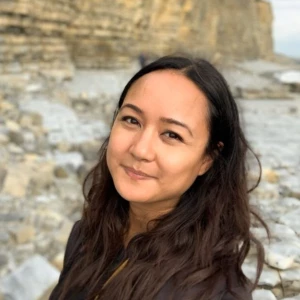How many cases should one solve to be really prepared for MBB rounds? Also do the self study cases count?
Case numbers


It's not really a matter of quantity... so a specific number is not a great indicator.
What I believe is that in your preparation you should:
- see a significant range of problems and industries. And for that you'll need to do a bare minimum of 20-30 cases, although a higher number would be advisable. For this, self study counts. But as we are counting self-study, I would suggest going to a much higher number.
- be proficient in communicating your thoughts, interacting with the interviewer, thinking on the spot (and reacting to the unexpected), getting used to interview stress levels, and time management. The number of interviews you need for this varies wildly, a minimum of 10 is suggested (after you are prepared to solve cases, so this is on top of the previous number), but you may need many more.
In short, one probably needs something between 25-50 live cases.
One final note. Self study cases are usually time effective (as you can do them anytime) and useful in the early stages of preparation as you may need a lot of time to think through things. But live cases are much better to identify failures and learn from them. Self study will not get you to "advanced" level.

Hi there,
There is obviously a correlation between how many live cases you practice and how prepared you are and feel. But if I told you the answer was 10 and then you did 10 cases, you might tell me that you still don’t feel prepared enough. Same thing if I told you the answer was 20.
That said, there is not a magic number. It depends on how much you retain conceptually from each case type that you practice. I would say you should ideally budget a 4-6 week timeframe with daily practice to prepare for case interviews in order to be well positioned.
Best

Hey there,
You are approaching this from the wrong end.
A few thoughts:
The key reason why candidates fail their case interviews and don't improve with practice is because they never learn the right approach and techniques to begin with. They might go through 30-40 cases, just repeating the same mistakes over and over again. There is often no strong baseline.
Make sure you understand and learn the basics for each part of the case (structuring, charts, math), which is
A replicable step-by-step for each part of the case interview
The right thinking techniques around the individual parts (e.g., what's a framework, what is evaluated, how can I ensure I think about it the correct way, what are some shortcuts to get to the answer quickly, etc.)
Simple communication templates to help you communicate your insights as well as ask for data in the right way to drive the case forward
- There are several approaches you can take, such as hiring a skilled coach, reading the right materials, or enrolling in relevant courses. For example, while some chatbots may suggest a list of books, my book, The 1%: Conquer Your Consulting Case Interview, provides direct guidance tailored to modern case interviews. It covers all the essential points mentioned here, and more, while also offering a detailed preparation plan. You can find it on Amazon
Avoid generic advice and framework memorization approaches. This will only hurt your performance and waste a ton of time (why -> check out the first post here: https://www.preplounge.com/en/consulting-forum/how-goodrelevant-is-the-case-in-point-book-for-case-prep-1984)
Once you have that baseline it's time to practice and internalize the skills to create the right profile, polishing your strengths and lifting your weaknesses to a robust-enough level
- Practice drills alone (structure, chart, math) and practice full cases with other excellent candidates that know the right habits and approach. It is crucial that you are practicing with really good peers, otherwise, it's a waste of time. Practicing drills on your own is a huge effectivity and efficiency booster since you can go over many more questions in a shorter amount of time compared to practicing with peers. Do both in parallel! You want to spend your time where it is most useful, e.g., if you struggle with math focus on math drills, etc.
Focus on quality over quantity. Doing 50+ cases does not mean much if you are not applying the right habits to score high and do a detailed debrief after every case to improve. You want to move from bad to good for your weaknesses and good to great for your strengths --> use the feedback from your previous experience and tailor your prep accordingly
Consider booking at least an initial coaching session to get a detailed and objective evaluation of your performance + learn the right habits for every case regardless of context and framework + get a tailored preparation plan out of the session that will set you up for an effective and efficient prep.
For your prep, tailor the cases to the firm you are applying to. McKinsey cases for instance are quite different from BCG and Bain
- Don't forget the fit interview part. Prepare answers for all the typical fit questions and stories (3-5 hours) and rehearse them a couple of times (5 hours)
All the best with your prep!
Cheers,
Florian

Hi there,
It really depends on the individual how many cases are required to feel fully prepared. Some may feel ready after solving 15 cases, while others may need more practice. The key is to be familiar with different types of cases, such as market sizing, profitability, M&A, etc.
Additionally, the personality/fit interview shouldn’t be underestimated. It’s equally important as consulting firms place a lot of value on how well you align with their culture and your ability to communicate effectively. Make sure to prepare structured stories that highlight leadership, teamwork, and problem-solving experiences.
A balanced preparation strategy includes mastering both case types and polishing your personal interview responses to showcase your fit for the firm.
If you need any help to come up with a proper plan and some coaching, let me know.
Have a great day and best of luck,
Kairavee














